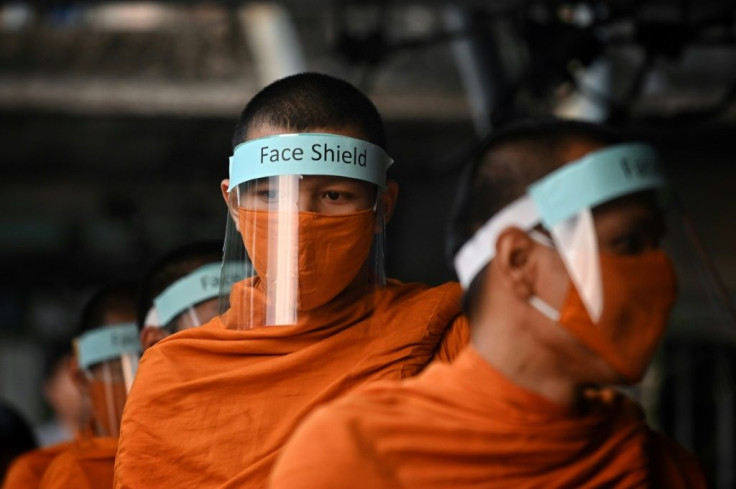Vesak 2021 Facts: Meaning, Wishes, Celebration, Food And Traditions You Should Know
KEY POINTS
- Vesak commemorates the birth, enlightenment, and death of Siddhartha Gautama, commonly known as the Buddha
- It falls on the first full moon of the ancient lunar month of Vesakha, which is usually in May or early June
- Many Buddhists celebrate the festival by doing good deeds and reflecting on the teachings of the Buddha
Millions around the world follow the teachings of the Buddha, and on the Vesak festival, which falls on Wednesday this year, they commemorate the birth and the attainment of enlightenment of the Buddha.
Celebrated once a year, Vesak, also called Wesak or Buddha Day, does not have a set date as it occurs on the same day as the first full moon of the ancient lunar month of Vesakha, which usually falls in May or early June.
For those who are unaware of this important Buddhist festival, here's what you need to know about Vesak.
Meaning
Vesak is regarded as the most sacred day to millions of Buddhists around the world as it is believed to be the day Siddhartha Gautama — later known as the Buddha — was born two and a half millennia ago, according to the United Nations Educational, Scientific and Cultural Organization (UNESCO).
For followers of the Buddha's teachings, Vesak marks the day Siddhartha Gautama achieved enlightenment, or discovered life's meaning, according to the BBC. He reportedly realized that wealth and luxury did not guarantee happiness after six years of studying and meditating while traveling as a homeless holy man.
Upon reaching enlightenment, the Buddha set on the journey of teaching lessons of his experiences to millions of people.
Wishes
Vesak not only commemorates the life, death and enlightenment of the Buddha, but it also reminds believers to celebrate life by making others happy.
During this day, Buddhists make special efforts to bring happiness to the vulnerable — particularly the sick, the elderly and the disabled. Followers also express their good wishes to their neighbors by giving flowers, cards and candles, which are all symbolic of the temporary nature of life.
The teachings of Buddha revolve around compassion and peace among all people and place much emphasis on serving humanity. At a time when differences cause nations to divide, Buddhism's language of love can be appreciated more than ever.
"For Buddhists everywhere it is indeed a felicitous opportunity while commemorating the birth, enlightenment, and passing away of Gautama Buddha, to celebrate his message of compassion and devotion to the service of humanity. This message is today perhaps more relevant than ever before," the United Nations shared on its website.
Celebration and Tradition
The celebration of Vesak varies among Buddhist cultures. All across Asia, countries such as Thailand, North and South Korea and India all welcome the day with celebration and religious practices.
For the majority of the religion's followers, Buddhists typically go to their local temple and spend the rest of the day there, making offerings and feasting with their communities. For others, they spend the holiday doing good deeds, according to Time and Date.
Families also decorate their homes with lanterns and take part in processions while wearing white garments.
One notable practice held during Vesak is called Bathing the Buddha, where water is poured over the shoulders of the Buddha statue to remind followers to clear their consciences of negative thoughts like greed and hatred.
Regardless of the differences in practices observed on the day, Vesak is perceived as a day of meditation and reflection on the Buddha's teachings.

© Copyright IBTimes 2025. All rights reserved.



















